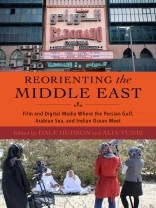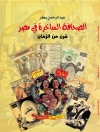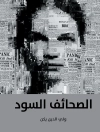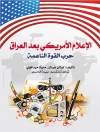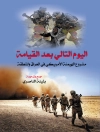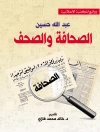Stories of desert landscapes, cutting-edge production facilities, and lavish festivals often dominate narratives about film and digital media on the Arabian Peninsula. However, there is a more complicated history that reflects long-standing interconnections between the Persian Gulf, Arabian Sea, and Indian Ocean. Just as these waters are fluid spaces, so too is the flow of film and digital media between cultures in East Africa, Europe, North Africa, South Asia, Southwest Asia, and Southeast Asia.
Reorienting the Middle East examines past and contemporary aspects of film and digital media in the Gulf that might not otherwise be apparent in dominant frameworks. Contributors consider oil companies that brought film exhibition to this area in the 1930s, the first Indian film produced on the Arabian Peninsula in the late 1970s, blackness in Iranian films, the role of Western funding in reshaping stories, Dubai’s emergence in global film production, uses of online platforms for performance art, the development of film festivals and cinemas, and short films made by citizens and migrants that turn a lens on racism, sexism, national identity, and other rarely discussed social issues.
Reorienting the Middle East offers new methods to analyze the often-neglected littoral spaces between nation-states and regions and to understand the role of film and digital media in shaping dialogue between area studies and film and media studies. Readers will find new pathways to rethink the limitations of dominant categories and frameworks in both fields.
Зміст
Introduction: Interconnecting Histories and Migrating Cultures, by Dale Hudson and Alia Yunis
1. Area Studies and Its Afterlives: Perspectives from the Gulf, by Nelida Fuccaro
2. Petrocolonial Genealogies of Cinema in the Gulf, by Firat Oruc
3. Interview with Ammar Al Attar on Cinemas in the UAE Exhibition, by Ammar Al Attar and Dale Hudson
4. Audible Love: Letter Songs, Vocal Letters, and the Aurality of Love across the Indian Ocean, by Bindu Menon
5. Ultimate Slaves in the Dead Zone: Blackness in Iranian Sacred Defense Cinema, by Parisa Vaziri
6. Dreams for Sale or the Challenges of Representing UAE through the Lens of Malayalam Cinema, by Sebastian Thejus Cherian
7. Transnational Coproductions and Questions of International Festival Films from Saudi Arabia and Oman, by Karolina Ginalska
8. Import-Re-Export: Reconsidering the Film Festival as a Port Economy, by Kay Dickinson
9. Peeking behind the Curtain: Gulf Filmmakers Imagine the Lives of Female Migrant Domestic Workers in the Arabian Peninsula, by Suzi Mirgani
10. Reorienting the Gaze: Emirati Women behind the Camera, by Chrysavgi Papagianni
11. Arabia’s Ambivalent Auteur: Meshal al-Jaser’s Cinematic Vision for the New Saudi Arabia, by Sean Foley
12. Covering Critiques: Film and New Media Artwork in the UAE, by Elizabeth Derderian
13. The Gulf between Students: The First Decade of the Gulf’s Longest Running Film Festival, by Alia Yunis and Sascha Ritter
Index
Про автора
Dale Hudson is Associate Professor of Film and New Media at New York University Abu Dhabi. He is author of Vampires, Race, and Transnational Hollywoods and (with Patricia R. Zimmermann) of Thinking Through Digital Media: Transnational Environments and Locative Places.Alia Yunis is a scholar, writer, and filmmaker whose work has focused on negotiations around culture, heritage, and media in the Arab and Islamic worlds and their diaspora. She is currently a research fellow at the Arab Gulf States Institute in Washington, DC.
